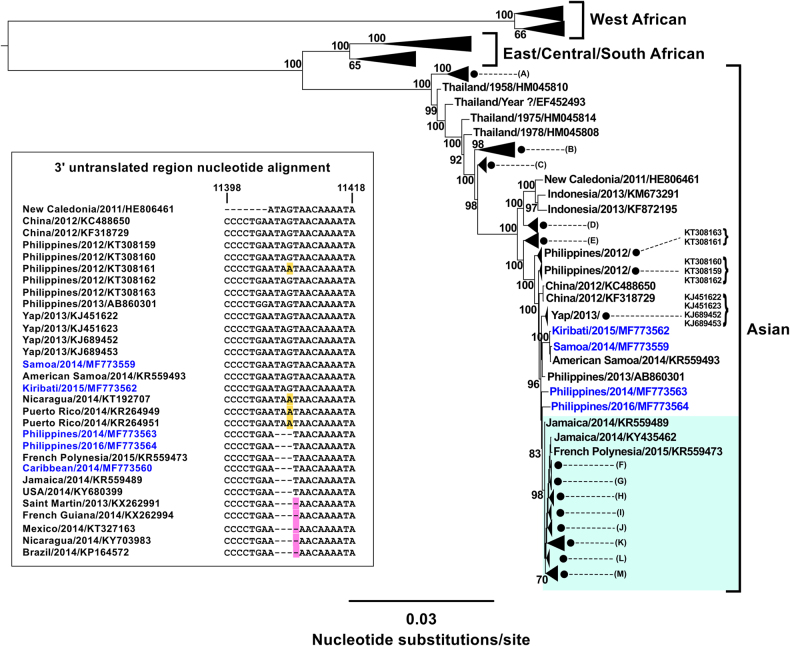Fig. 1. Phylogenetic tree inferred from 557 chikungunya virus (CHIKV) complete coding region sequences.
Midpoint rooted phylogenetic tree derived using FastTree and the generalised time-reversible nucleotide substitution model. Percentage Shimodaira-Hasegawa-like local support values are shown for key nodes estimated from 1,000 resamples15. Whole-genome sequences were obtained for 11 CHIKV strains imported into Australia between 2010 and 2017 (GenBank accession numbers MF773559-MF773569). New sequences from the current study are highlighted in blue text. Collapsed clades within the Asian genotype labelled (A, B, C, D) and (E) represent the following sequences with GenBank accession numbers: (A) EF027140, EF027141, HM045788, HM045803 and HM045813; (B) HM045787, HM045789, HM045796, HM045802, KX262987 and KX262988; (C) HM045790, HM045791, HM045797 and HM045800; (D) EU703759-EU703762, KM923917-KM923920, FN295483 and FN295484; (E) FJ807897, MF773561 and MF773565. Green shading indicates the American clade (includes the Saint Martin, Caribbean 2013 sequence, KX262991 within the collapsed clade (K) and 302 other sequences sharing 99.6% to 100% nucleotide identity) within the Asian genotype. The number of sequences within the American collapsed clades include: (F) 2; (G) 2; (H) 7; (I) 4; (J) 11; (K) 191; (L) 2 and (M) 81. The inset shows the 3′ untranslated region nucleotide alignment of representative Asian genotype strains (subset of 30 sequences taken from original alignment of 270 sequences) and the position of signature, three or four nucleotide deletions (genome positions 11,406 to 11,408 or 11,409, with numbering based on the Philippine 2012 sequence, KT308163), which were detected in the Philippine MF773563 (2014) and MF773564 (2016) sequences, the French Polynesian KR559473 (2015) sequence and 214 American sequences.

